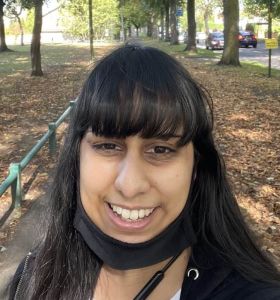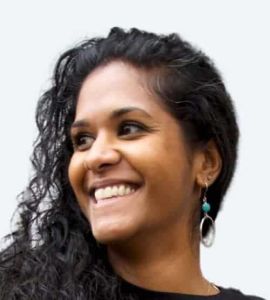I’ll start by saying, I am not a trustee, yet…
My name is Laura. I’m 25, a committee member for a charity, an advisory group member for ATRD, an aspiring trustee.
The world of trusteeship opened up to me in my former role, working for a charity who support non-profit Chairs. At first, the word trusteeship was unfamiliar, and dare I say, irrelevant to me. But I soon realised these charity board members were thoughtful, resilient, precise, eager to self-improve people who I really admired. I was inspired by their understanding of the people skills needed for the role, as well as the opportunity to do something to help people, challenging and growing yourself in the process.
Intrigued, I found myself a board sub-committee position (with the help of the ATRD network!) at a charity supporting girls and young women.
I think I started off with an unspoken rule book in my head: principles I had unconsciously subscribed to. They go a little bit like this,
- It is important to completely and entirely blend in with the other members of the
committee – don’t mess up the status quo.
- I must be very serious or I’ll be chucked out OR WORSE reveal that I don’t
have an answer to everything
- I obviously must be absolutely and undeniably amazing, exceeding everyone’s
expectations of myself, despite having never done this before.
Turns out I had (and still have) a few things to unlearn…
Step 1 – Don’t feel like you need to pretend you know when you don’t. I started by trying to keep up, despite not knowing the acronyms. It’s scary how scary it can be to ask questions in an unfamiliar environment. Something I quickly realised was that I would need to find a way to put myself, my fears and my imposter syndrome to the side. Ultimately, this isn’t about me. I am here to support the organisation to achieve their aims, and make the world a better place – focussing on this, alongside the rewards that the role brings, helps me to keep perspective and enjoy being a part of the team.
Step 2 – Consider accountability. Remember this isn’t a job, it’s a voluntary role. I want to perform well and be told within a framework that I know from my day to day job but realistically, I don’t have a manager here – I need to manage myself. I also realise I have to keep myself accountable, what kind of member do I want to be? What do I want to contribute, have I got the knowledge to challenge yet? I now recognise how important this is. How do I want to contribute? How will I assess how I am doing?
Step 3 – Be human and lead with joy. This is something I always tell myself but struggle with. I felt all the pressure of what I thought this role should be, and what the person who succeeds looks like. I am starting to realise all I need to be is myself. Take the opportunity to laugh and smile as much as possible. Once you can let go of your fears, and accept the learning journey – your unique perspective can shine through.
Step 4 – Remember that friends and supporters are everything. I am constantly moved by the kindness of many wonderful people in the voluntary sector, including my committee peers and the ATRD network. If you ask, people are always willing to help you, but you need to start by asking. And there really is no such thing as a stupid question, people are most likely wondering the same thing as you. I now understand that investing time and energy in people, listening and learning from them is the gift that keeps on giving. It will put a smile on your face, and theirs.
Author
Laura Shafi


